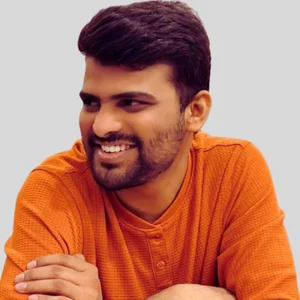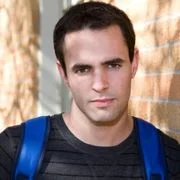

Hire The Best Engineering Physics Tutor
Top Tutors, Top Grades. Without The Stress!
10,000+ Happy Students From Various Universities
Choose MEB. Choose Peace Of Mind!
How Much For Private 1:1 Tutoring & Hw Help?
Private 1:1 Tutors Cost $20 – 35 per hour* on average. HW Help cost depends mostly on the effort**.
Engineering Physics Online Tutoring & Homework Help
What is Engineering Physics?
Engineering Physics is an interdisciplinary field combining core physics theories with practical engineering methods to tackle real-world problems. It covers mechanics, Electromagnetism (E&M), Thermodynamics and Quantum Mechanics (QM). Students might work on solar panels that harvest sunlight or design tiny sensors for health monitors. Its appeal lies in bridging science with practical needs.
Popular alternative names include Applied Physics, Technical Physics, Engineering Science and Physical Engineering.
Major topics span classical mechanics, E&M, thermodynamics, QM, materials science and solid-state physics, plus optics, semiconductor devices, computational modeling, control theory, and nanotechnology. Real-life applications range from MRI machines and fiber‑optic networks to advanced battery materials and aerospace materials testing.
A brief history: In the early 1900s, developments in electron theory and X‑ray studies paved the way for Engineering Physics. Ernest Rutherford’s 1911 atomic model spurred new materials research. Mid‑20th century saw semiconductors, transistor invention and laser breakthroughs, baced on quantum theory. Fiber optics and integrated circuits in the 1970s revolutionized communications and computing. Recent decades focus on nanotechnology and quantum computing prototypes. Today Engineering Physics drives innovations in renewable energy, medical imaging and smart materials.
How can MEB help you with Engineering Physics?
Do you want to learn Engineering Physics? MEB offers one‑on‑one online tutoring just for you. If you are a school, college or university student and want higher grades on homework, lab reports, tests, projects, essays or research papers, our tutors can help you any time, day or night. We prefer chatting on WhatsApp. Don’t use it? Email us at meb@myengineeringbuddy.com
Students from many countries use our service, especially the USA, Canada, the UK, the Gulf, Europe and Australia.
Our students often ask for help because they have too much homework, the questions are very hard, they missed classes, have health or personal issues, or they work part‑time and can’t keep up.
If you are a parent and your student is having this trouble, contact us today to help your ward do great on exams and homework. They will thank you!
MEB can help in more than 1,000 other subjects. Our expert tutors make learning fast and easy. It is important to ask for help when you need it so you can study without stress.
DISCLAIMER: OUR SERVICES AIM TO PROVIDE PERSONALIZED ACADEMIC GUIDANCE, HELPING STUDENTS UNDERSTAND CONCEPTS AND IMPROVE SKILLS. MATERIALS PROVIDED ARE FOR REFERENCE AND LEARNING PURPOSES ONLY. MISUSING THEM FOR ACADEMIC DISHONESTY OR VIOLATIONS OF INTEGRITY POLICIES IS STRONGLY DISCOURAGED. READ OUR HONOR CODE AND ACADEMIC INTEGRITY POLICY TO CURB DISHONEST BEHAVIOUR.
What is so special about Engineering Physics?
Engineering Physics stands out because it mixes deep physics ideas with hands‑on engineering needs. Students learn both abstract theories and real‑world design, making their skill set flexible. This subject bridges pure science and applied technology, letting learners solve complex problems, build models, and test gadgets. Its unique blend trains thinkers who can innovate in labs and launch practical products.
One big advantage is a wide career path in research, tech, or design roles, since grads can work in labs or factories. Engineering Physics also boosts problem‑solving and math skills more than typical engineering or physics alone. On the downside, its courses can be tougher, with heavy math and theory. Some students may prefer more focused subjects like pure engineering or straight physics.
What are the career opportunities in Engineering Physics?
Students who finish Engineering Physics can go on to master’s or PhD programs in areas like nanotechnology, photonics, quantum engineering, or materials science. Many also choose specialist degrees in renewable energy, space technology, or applied mathematics. Interdisciplinary courses that mix physics with computer science, electronics, or data science are very popular today.
In the job market, graduates often work as research scientists in labs, design engineers in tech firms, or data analysts in software companies. They might develop new materials, run simulations, build prototypes, or manage sensors and instruments. Some join aerospace, automotive or medical device industries where they test and improve cutting‑edge products.
Studying and doing test preparation in Engineering Physics builds a strong base in key ideas like mechanics, electromagnetism and quantum theory. It helps students gain confidence in solving tough problems, doing well on exams like the GRE Physics Test or national entrance tests, and handling real‑world challenges.
The real‑world benefits include designing better electronics, improving solar panels, advancing medical imaging, and creating smart sensors. A solid grip on Physics also sparks creative thinking, making it easier to work on new tech, launch startups, or contribute to research that shapes tomorrow.
How to learn Engineering Physics?
To learn and prepare for Engineering Physics, start by breaking the course into topics like mechanics, electromagnetism, thermodynamics, and modern physics. Create a study plan with milestones. Read your main textbook before each class and take clear notes. After studying each concept, solve a mix of easy and challenging problems. Keep summary sheets of formulas and key ideas, and review them regularly. Join or form a study group to discuss tricky questions and stay motivated.
Engineering Physics can seem tough because it combines math with physical theory. The secret is consistent practice and a solid grasp of algebra and calculus. Work through example problems slowly at first, making sure you understand each step. Don’t rush—mastering the fundamentals makes advanced topics much easier. Over time, concepts that once felt hard will become clear.
Self-study is possible if you’re disciplined and know where to find good resources—textbooks, online lectures, practice problems, and forums. However, a tutor can speed up your progress by answering questions in real time, giving focused explanations, and helping you avoid common mistakes. If you ever feel stuck or lose motivation, a tutor can guide you and keep you moving forward.
MEB offers 24/7 online one‑on‑one tutoring in Engineering Physics, tailored to your syllabus and learning style. Our experienced tutors break down complex topics into simple steps, provide plenty of practice problems, and review your assignments in detail. From lab reports to exam prep, we offer affordable support whenever you need it—day or night.
The time needed varies with your background and goals. For a full semester course, plan on about 10–15 hours of study per week over 3–4 months. If you’re targeting a specific exam, 2–3 hours of focused study each day for 2–3 months can yield big improvements. Start early, track your progress, and adjust your schedule as needed.
Useful resources include YouTube channels like Khan Academy Physics, MIT OpenCourseWare, and Michel van Biezen. Check websites such as HyperPhysics (hyperphysics.phy-astr.gsu.edu), The Physics Classroom (physicsclassroom.com), and Physics Stack Exchange. Top books are “University Physics” by Young & Freedman, “Fundamentals of Physics” by Halliday, Resnick & Walker, “Engineering Physics” by K.K. Tiwari, and “Introduction to Electrodynamics” by D.J. Griffiths. These cover theory, worked examples, and problem sets widely recommended by engineering students.
College students, parents, tutors from USA, Canada, UK, Gulf etc are our audience. If you need online 1:1 24/7 tutoring or assignment help, our tutors at MEB can help at an affordable fee.


















































































